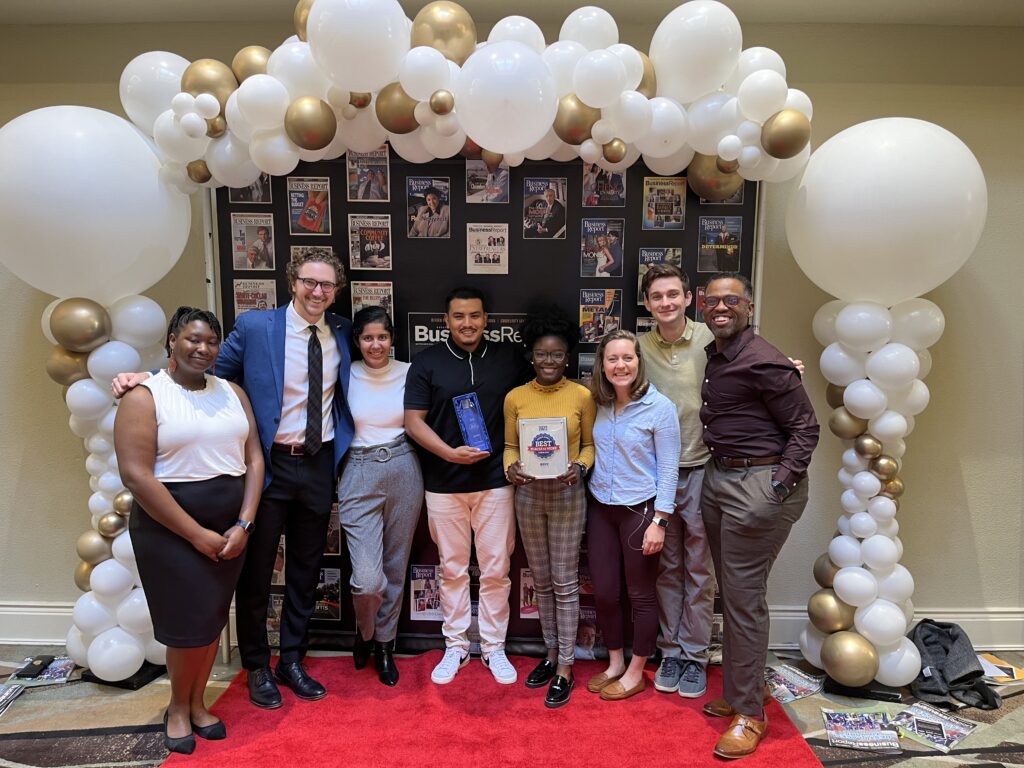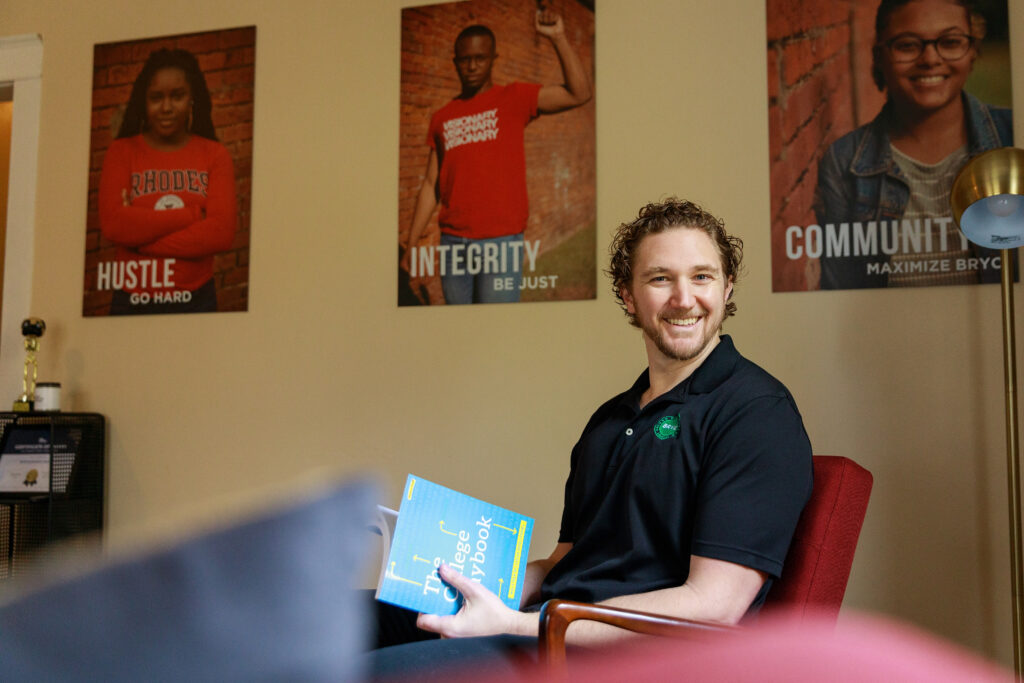By Jack Barlow
First published February 13, 2023, on theadvocate.com.

BRYC team members attend the 2022 “Best Places to Work” awards breakfast
Getting into college is never easy. For some, though, it’s far harder than it is for others.
Helping under-resourced high schoolers fulfill their college dream is a mission Lucas Spielfogel has dedicated himself to. Spielfogel is the executive director of the Baton Rouge Youth Coalition (BRYC), an organization that aims to make college achievable for all.
Born in New York City and raised mostly in Florida, Spielfogel first came to Baton Rouge in 2010 to teach social studies at Baker Middle School as a member of Teach For America.
It was there that he soon began to notice a trend. While many of his students were bright and and capable, a wide range of circumstances beyond their control was hampering their chances of furthering their education.
“I was working with some really amazing students who clearly had significant resource disadvantages,” he said.
“As a teacher, when you really get to know your students you can see the way that those resource gaps block them.”
The opportunity to help arose just as Spielfogel’s allotted time in Baton Rouge was drawing to a close. Just as he was looking for jobs in other parts of the country, and with “one foot out the door”, an opportunity to join BRYC came up.
Having been formed in 2009, the nonprofit BRYC was doing what Spielfogel was interested in: aiming to make the college dream achievable for prospective high school kids by providing extra help and support outside school hours.
“I was really excited to build a resource network and support system that was supplemental to what the students were having in school,” Spielfogel said.
BRYC’s students, which it calls “Fellows”, attend one three-hour after school session every week. With the help of BRYC team members and trained mentors, they’re assigned grade-specific programming: courses cover everything from helping build good study habits and time management to preparation for the ACT test.
BRYC helps with tutoring, counseling, financial assistance, scholarships and much more. The courses it offers are necessarily broad. While many of BRYC’s students are financially in need, it’s far from the only hurdle they face.
“The challenges that students from low socio-economic backgrounds face are so intertwined,” Spielfogel said.

“They’re so much a product of what’s available in their geographic communities and in their public education offerings. It’s such a deep and wide set of challenges. That’s why BRYC doesn’t seek to address just one of them: it’s a wrap-around approach that’s responsive to the many different ways students can be tripped up, simply because they don’t have the same advantages as their more affluent peers.”
The college application process and ACT tests are given a particular focus. Yet not only does BRYC help students graduate high school, but it continues to provide a set of services with them as they work their way through college and beyond.
It has made a huge difference in many lives. Its statistics show its impact. It has 579 alumni, who have graduated from high school while in the BRYC program; 290 alumni currently in undergraduate enrollment; 168 undergraduate degree holders; and 17 with advanced degrees.
Most notably, BRYC’s overall persistence rate, which counts students who either graduated from college or are currently working their way through, is a spectacular 80%.
It’s been named a best place to work by The Baton Rouge Business Report — a recent accolade of which Spielfogel is particularly proud — and has won a stack of awards and grants. Late last year it was given a grant from the influential NBA Foundation.
Spielfogel himself can take a lot of credit. When he joined in 2012, BRYC had around 50 high school students on board. While it was initially set up along similar lines, it has greatly expanded over the years.
Spielfogel uses the phrase “bowling with bumpers” to sum up what it’s like growing up with a family safety net. Sure, it doesn’t guarantee you’ll make a strike, but it does mean you’re unlikely to end up in the gutter.
“When you have the social capital, with parents who have introductions for you at internships and all that sort of stuff, it’s really hard not to succeed,” he said. “It’s really hard not to, sort of, be promoted in your life in various ways. That’s not to take anything away from people — like me — who as a kid worked really hard. It’s just a fact of the matter. A person has to be thoughtful about their own experiences and what sort of small, or big, advantages they’ve gained along the way that add up to make sure they stay afloat.”
Applications to join BRYC are now open and can be made on its website (as can tax-exempt donations, which help keep it running).
In the end, when it comes to success, support is key.
“In the case of students who didn’t win the birth lottery, and who weren’t born into super-resourced, affluent situations, it’s necessary to build a support system that sort of wraps around them,” he said. “I know it’s probably an overused cliché, but it really does take a village.”














